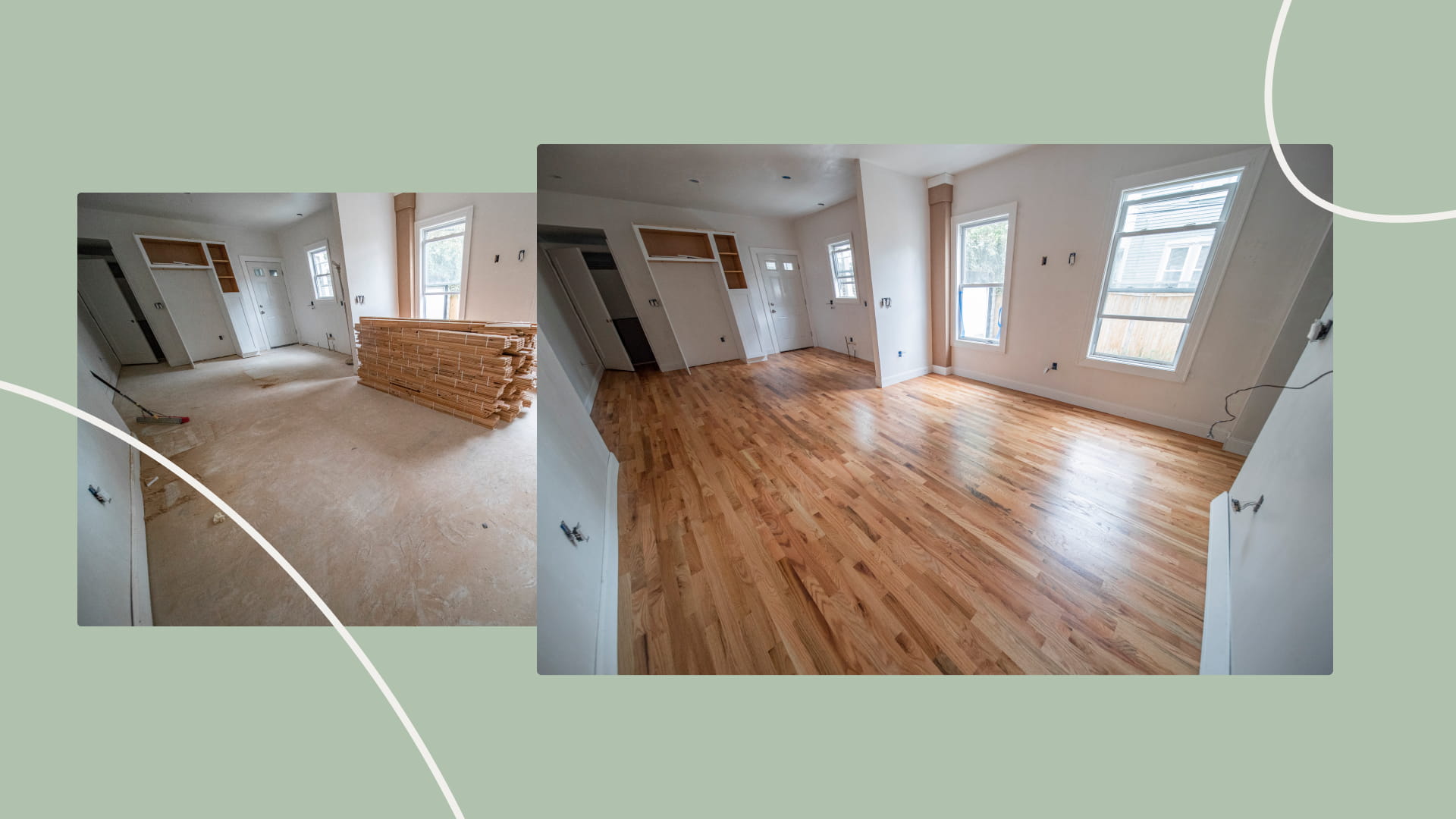Is it cheaper to install hardwood floors yourself? Of course it is! The answer is yes, but only if you are prepared for all the difficulties. Yes, a do-it-yourself installation will eliminate labor costs, but the challenges may be much greater than you anticipate: acquiring tools, learning proper installation techniques, correcting mistakes and most importantly, not making a mistake in choosing the right wood planks for your room given the humidity.
In this article, we'll break down the exact costs of installing DIY hardwood flooring installation. And compare it to hiring a professional. We'll also highlight the challenges you may face and help you decide if it's really worth it. By the end of the article, you'll know for sure if you need it and if the money saved is worth it.
DIY Hardwood Floor Installation: Breaking Down the Costs
Materials Costs
The most important expense is the material itself. Solid hardwood flooring varies in price. Trademarked material, such as oak in different varieties, can cost anywhere from $3 to $8 per square foot. The price here is also affected by the finish. So, for a 500 square foot room, the material will cost between $1,500 and $4,000. If you are thinking about engineered hardwood floors, the price may be a little lower or higher, much depends on the specific type.
More about the cost of installation of hardwood floors
Tool Rentals/Purchases
DIY projects often come with a tool checklist. Here are a few you’ll likely need:
- Flooring Nailer or Stapler: $30–$50 per day to rent.
- Saw (miter or table): $50–$70 per day to rent, $200–$500 to buy.
- Power Drill: $40–$150 to buy.
- Moisture Meter: $20–$50 to buy.
- Miscellaneous Supplies: Nails, adhesive, spacers, and safety gear, costing $50–$150.
For a single project, renting tools is easier on your wallet. If you plan to tackle more DIYs, buying might be smarter.
Hidden Costs
Mistakes are easy to make and can cost more than expected. For instance:
- Mistakes: One wrong cut can mean wasting materials, adding $100–$300.
- Subfloor Repairs: Uneven floors can’t be ignored. Fixes may cost $200–$500.
- Extra Time: Delays could mean higher rental fees or more weekends spent working.
⚠️ Expect an extra 10% to 20% on your budget for surprises.
Professional Installation: What You’re Paying For
Labor Costs
Professionals charge $6 to $10 per square foot for labor. For 500 square feet, that’s $3,000 to $5,000. You’re paying for skill, speed, and precision.
Time Savings
A professional crew can finish in two days or less. A DIY project may take weeks. Less time means fewer disruptions to your routine.
Warranty and Expertise
Hiring professional hardwood floor installers often comes with warranties for materials and workmanship. This covers mistakes or future repairs. Professionals also handle uneven subfloors and tricky layouts that could trip up a DIYer. Plus, some flooring warranties require professional installation.
Cost Comparison Table: DIY vs. Professional
Cost Comparison: DIY vs. Professional Installation
Here’s a quick breakdown for a 500-square-foot room:
| Factor | DIY Cost Estimate | Professional Cost Estimate |
|---|---|---|
| Materials | ≈$1,500 | ≈$1,500 |
| Tools Rental | $150 | Included |
| Labor | $0 | $2,000 |
| Mistakes/Repairs | $300 | $0 |
| Total Cost | $1,950 | $3,500 |
What Do These Numbers Mean?
- DIY Savings: You could save about $1,550, but it takes more time and effort.
- Professional Benefits: Higher cost, but includes expertise, tools, and peace of mind.
When Is DIY Worth It?

Ideal Scenarios for DIY
DIY is a solid option if:
- It’s a Small Area: Spaces under 200 square feet, like closets or offices.
- You Know Your Tools: You’re confident using saws, drills, and other equipment.
- The Layout is Simple: Square rooms without stairs or weird angles are much easier.
Red Flags for DIY
DIY might not be worth it if:
- Large, Complex Spaces: Over 500 square feet or with tricky layouts.
- Limited Time: You can’t dedicate multiple weekends.
- You Want Perfection: Pros can deliver a flawless finish.
Is It Easy to Install Hardwood Floors Yourself?
While DIY installation is achievable for some, it depends heavily on the size of the project, your skill level, and the complexity of the space. If you’re tackling your first hardwood floor, start with a smaller, simpler area to build confidence.
Conclusion
Is it cheaper to install hardwood floors yourself? Yes, DIY installation saves money if you’re ready to invest time and effort. For many, though, hiring professionals means less stress and fewer mistakes. The choice is yours!



